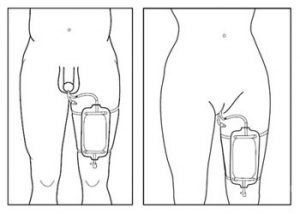A nurse is assisting with the care of a client following electroconvulsive therapy for the treatment of a depressive disorder. Which of the following findings should the nurse expect 15 min following the procedure?
Sleep apnea
Disorientation
Tonic-clonic seizures
Paresthesias
The Correct Answer is B
Disorientation is a common side effect of ECT and is typically temporary. It may include confusion and difficulty recalling recent events or personal information. This post-treatment disorientation is often referred to as the "postictal state" and usually resolves within a short period of time.
Sleep apnea, tonic-clonic seizures, and paresthesias are not expected findings following ECT and would require immediate attention and intervention if they were to occur. It is important for the nurse to closely monitor the client's vital signs, oxygen saturation levels, and neurological status after the procedure to ensure their safety and well-being.
Nursing Test Bank
Naxlex Comprehensive Predictor Exams
Related Questions
Correct Answer is B
Explanation
This statement shows that the mother understands the importance of having matching identification bands for herself and her baby. Matching identification bands help ensure proper identification and prevent any mix-ups or unauthorized individuals from gaining access to the baby. It is a security measure commonly implemented in healthcare facilities to protect the well-being and safety of both the mother and the newborn.
Correct Answer is ["C"]
Explanation
A: The tubing should not be coiled on the bed, especially not above the collection bag, as this can interfere with the drainage of urine and increase the risk of infection.
B: The drainage bag should always be kept below the level of the bladder during ambulation to prevent backflow and reduce the risk of infection.
C: Securing the catheter tubing to the lower abdomen (for male clients) or thigh (for female clients) helps to reduce the risk of catheter displacement and trauma. Proper securing also prevents unnecessary tension on the tubing, which can cause urethral irritation.
D:A sterile specimen should be collected from the sampling port of the catheter tubing, not directly from the drainage bag, which could lead to contamination.

Whether you are a student looking to ace your exams or a practicing nurse seeking to enhance your expertise , our nursing education contents will empower you with the confidence and competence to make a difference in the lives of patients and become a respected leader in the healthcare field.
Visit Naxlex, invest in your future and unlock endless possibilities with our unparalleled nursing education contents today
Report Wrong Answer on the Current Question
Do you disagree with the answer? If yes, what is your expected answer? Explain.
Kindly be descriptive with the issue you are facing.
